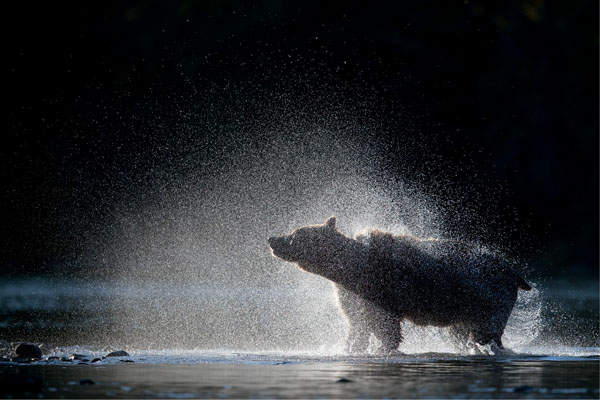
Grizzly bear, Chilcotin, BC
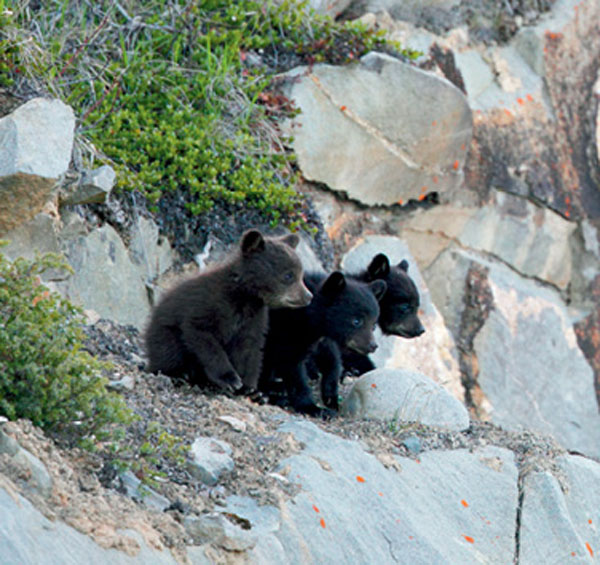
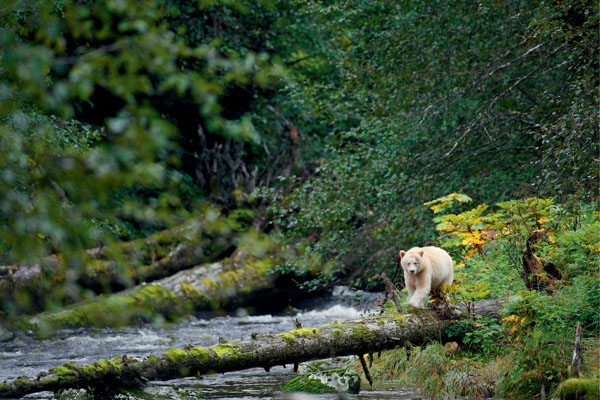
For all my teachers, human and bear alike.
For Scruffy, Blondie and Lucy, Darkie, 72, 135, 122, 148, and all the bears who have taught me so many things over the years.
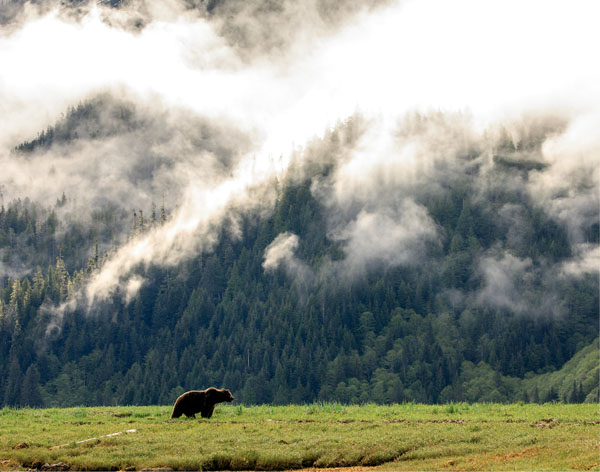
An adult male grizzly bear in the Khutzeymateen, BC
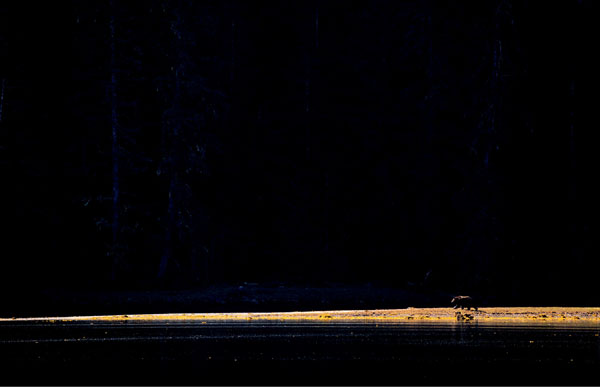
A grizzly bear on the shores of the Khutzeymateen, BC
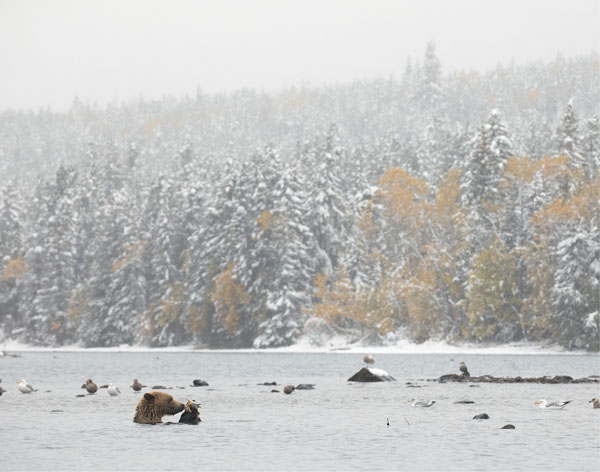
Female grizzly bear dining on salmon in the Chilcotin, BC
Foreword
There is no mention of bears in the Bible story of the Garden of Eden. But they must have been there. They have accompanied us on every step of our human journey through the ages. In fact, in many Indigenous cultures they have always been our teachers. Bears taught us what foods are edible, how to travel through complex terrain and how to be humble, alert, intelligent in short: truly human. There are those who believe that human beings are the end point and highest achievement of the evolutionary process. Bears have a way of letting us know we arent, and that thats okay.
After all, evolution hasnt achieved any final outcome because its always in play and will never end until life itself ends. We think of evolution as a process of genetic change and the selection of new forms of life through selection natural and otherwise. But human culture evolves, too. And so does bear culture. Because through our interactions we continue to select behaviours and survival strategies in one another. When we stopped hunting grizzly bears, grizzly behaviours began to change in response; some mother bears even began raising their young near our communities, evidently by choice. When we invented capsaicin bear sprays, human culture, at least in bear country, evolved too. And so it goes.
There is a school of interpretation that suggests humans were never banished from Eden that we live in it today but that our banishment is simply a product of our own hubris. We lock ourselves out daily simply because we think of ourselves as superior to the rest of nature, and hence separate from it. That sense of separateness deprives us of the ability to truly integrate with and be one with the living Creation of which we are really only one part. What a loss because that living world is the ultimate source of our humanness. Like the bear, we have been shaped by Nature.
In todays troubled times, when the threads of biodiversity are coming unravelled and the very climate is increasingly something we dont recognize, it might be that the bears role as teacher is more important than ever before. It could even be that there is still a way back into that mythic garden, if we would simply stop assuming we can find our way there on our own. There is nothing wrong with turning to a guide for help. Just as Ursa Major, in its slow arc around the night sky, always points unerringly to the North Star, perhaps the earthly ursines with whom we share the mountains, forests, coastal estuaries and river bottoms can point us to a sustaining and better relationship with the living world of Nature that is not just our home, but the source of all our being. After all, they sure know their way around.
If so, then Sarah Elmeligi and John Marriott are timely intermediaries. Learning from the bear can begin, for all of us, with learning about the bear. And about ourselves. Because its a two-way relationship and thats one of the most important points of this book.
Even just for practical reasons, learning about bears in a respectful way is a worthwhile project. Because, perhaps more so than at any time in the past century and a half, humans and bears occupy the same spaces. Prosperity, recreational technology, selfie culture and a growing yearning for connection to what is real all conspire to put humans everywhere in bear country. We live in bear country. We recreate there. We work there. At the same time, as some bear populations begin to recover from a century of mismanagement, bears are turning up in places we never expected to see them again. Grizzly bears sometimes surprise pheasant hunters and farmers well out on the prairie now. Black bears wander into Vancouver and Calgary and other urban places.
Were stuck with each other, like it or not. We need to figure out how to get along. But its more than that: we need to find new ways of thinking about and knowing one another. The bears are actually doing pretty well at that. Some of us are too. But the rest of us could use some help. And thats what this exceptional book offers.
In metaphorically locking ourselves out of Eden by trading humble coexistence with other beings for an isolated, human-centred objectification of Nature and a redefining of what many Indigenous people call all our relations into bundles of resources to be exploited we lost our ability to understand Nature. Instead, we began to fear it. Fear is founded on ignorance. We fear what we do not know. And fear is what gives rise to violence and hatred.
The best antidote to fear is knowledge and understanding. And knowledge and understanding are part of the foundation of love and joy. People sometimes ask me if Im not scared to be around bears. No, Im not; I love being around them. They bring me joy. And they continue to teach me.
By learning to know bears better, and by studying in order to understand our own responsibilities as fellow citizens of what may well be the only living planet in the Universe, we can replace the fear and hatred that too often, in the past, characterized our view of these large carnivores with respect and trust. For some, that might seem hard to imagine. To them, I can only say: read on. And spend time with the photographs; gaze deeply. Bears dont only live on the land; they live in our heads. Lets give them better homes there by getting to know them better; it can only help both us and them.
Bears and humans: we may seem like very different creatures but were in this thing together. If we can get it right, we will continue that age-old journey together through time, space and life. Who knows where that journey might lead? Perhaps back to a garden we never left, but simply forgot how to recognize. Perhaps once we see bears more clearly for who they actually are, we will find that those ancient teachers can guide us back to some of what weve lost.
Or perhaps not. But it would certainly be worth finding out.
KVT December 2019
Acknowledgements
As with all projects in my career, this book is a culmination of efforts and support from many people. I would like to thank all of my graduate supervisors from both my masters and PhD programs who have always challenged me by asking the right questions. Each of them has made my work stronger and more robust and I am eternally grateful for their guidance. Thank you, John Shultis, Pam Wright, Michael Gillingham, Owen Nevin, Ian Convery, Gordon Stenhouse and David Gummer.
I would also like to thank all of the contributors to this book: Sydney R. Stephens, Julia McKay, Dan Rafla and Andrew Derocher. Your stories make this book better, more interesting.
Next page

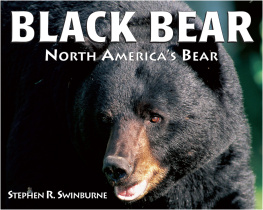
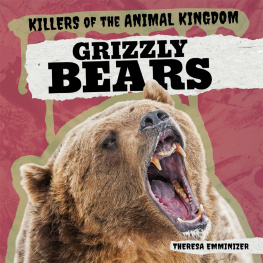

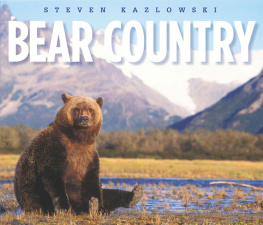
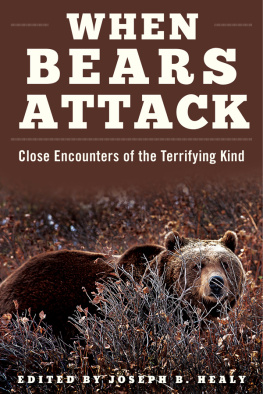
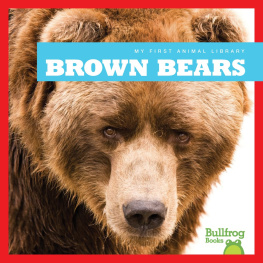
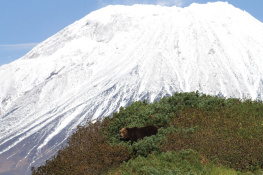
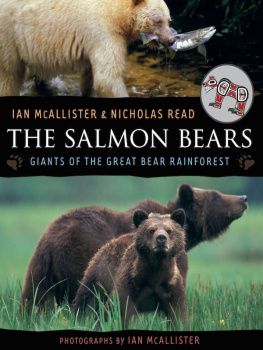
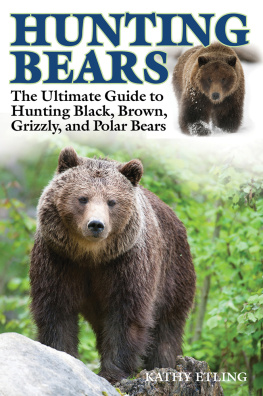
 Grizzly bear, Chilcotin, BC
Grizzly bear, Chilcotin, BC

 An adult male grizzly bear in the Khutzeymateen, BC
An adult male grizzly bear in the Khutzeymateen, BC A grizzly bear on the shores of the Khutzeymateen, BC
A grizzly bear on the shores of the Khutzeymateen, BC Female grizzly bear dining on salmon in the Chilcotin, BC
Female grizzly bear dining on salmon in the Chilcotin, BC